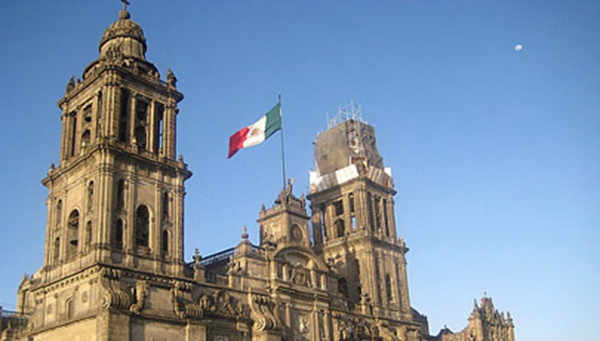By Vicki Cann, PhD Candidate, Communication University of China
Amid the 2008 financial crises, the world had witnessed the inauguration of the G20 Heads of State Summit as a mechanism to mitigate growing challenges in our increasingly globalized world. This year's gathering is slated to take place on September 4-5 in Hangzhou, China. China's G20 Presidency sends a signal for global efforts to be more inclusive.

Newly-emergent ‘middle powers’ had also hosted previous summits namely, Seoul, South Korea (2010), Los Cabos, Mexico (2012) and Antalya, Turkey (2015). Mexico and China in particular, have taken a more active role to champion the rights of developing countries while urging leaders to work collaboratively in honoring commitments made at prior Summits.
The 2012 G20 Leaders Declaration acknowledged that every country faces unique challenges, however, "Despite the challenges we all face domestically, we have agreed that multi-lateralism is of even greater importance in the current climate, and remains our best asset to resolve the global economy's difficulties."
Mexican President Enrique Pena Nieto reiterated at last year's Summit in Turkey, saying, "in a closely interconnected world, our countries cannot dismiss the role of developing countries in achieving sustainable and resilient economic growth … G20 members have to continue to work together to effectively oppose protectionism, facilitate commercial exchange and strengthen the multilateral trading system."
Similarly at Antalya, Chinese President Xi Jinping spoke on the necessity of collaboration to fulfill country promises made year after year.
"Development is meaningful only when it is inclusive and sustainable. To achieve such development requires openness, mutual assistance and win-win cooperation … We must translate our commitments into actions and work together to ensure that everyone can have access to development and live with dignity … to build a sound ecology is vital for mankind's future."
Each year among the recurring commitments are the promotion of trade, economic growth and job creation.
During his address in Turkey President Enrique Pena Nieto said G20 countries have a common responsibility to ensure global economic growth and stability. Collectively these countries account for nearly 80 percent of international trade and represents two thirds of the world's population. The responsibility of G20 nations remains evident.
Angel Gurria, Secretary General for the Organization for Economic Cooperation and Development (OECD) and Mexico's Former Minister of Foreign Affairs, notes that for growth to be more effective and inclusive, fiscal policies, tax and transfer systems must be re-adjusted to keep up with a country's costs of living.
"In recent decades, the effectiveness of redistribution weakened in many countries (in advanced countries in particular) due to working-age benefits not keeping pace with real wages and taxes becoming less progressive. A renewed focus on redistribution is important; these need not adversely affect growth if properly targeted, implemented and activated for employment purposes."
In recent years, policy makers have recognized the necessity to implement policy measures that protect and bolster the survival of Small-Medium Enterprises (SMES).
Carlos Magarinos, Global Chair of the Global Alliance of SMEs and Non-resident Senior Fellow at the Chongyang Institute for Financial Studies at Renmin University, said SMEs worldwide are still the most vulnerable and susceptible to potential shocks created by an interconnected nature of the global financial system.
SMEs account for 95 percent of all enterprises in countries that form the Organization of Economic Co-operation and Development (OECD).
"[These] account for 60% of private sector employment and 52% of private-sector value added. They represent 16% of gross domestic product (GDP) in low-income countries (in a large but informal sector) and 51% in high income countries … Unlike large companies they need special attention … SMEs are set to play an integral role in reducing youth unemployment, which affects 40 million young people across the G20 members."
Magarinos said SMEs are "net job creators" and the G20 countries ought to establish and implement special arrangements to spur the growth, development and entrepreneurial spirit of SMEs worldwide. Accordingly, a July OECD Status Report noted that under China’s G20 Presidency, "the OECD will also act as an institutional partner of the newly- established World SME Forum, led by the private sector."
All eyes are now turning to Hangzhou. Beijing has provided many examples that attest to its commitment to strengthen multilateralism. China's ‘Belt and Road initiative’, the $40 billion Silk Road Fund, launch of the Asian Infrastructure Investment Development Bank (AIIB), and $US60 billion dollar pledge to the African continent at the recent Forum of China Africa Cooperation (FOCAC) are just a few examples.
With eager anticipation, the world keenly awaits what Beijing will bring to the table in September.
Email: vickicann@mail.com
Wechat ID: 13071155861
( The opinions expressed here do not necessarily reflect the opinions of Panview or CCTV.com. )

Panview offers an alternative angle on China and the rest of the world through the analyses and opinions of experts. We also welcome outside submissions, so feel free to send in your own editorials to "globalopinion@vip.cntv.cn" for consideration.















